#I can't help not to salt
Explore tagged Tumblr posts
Text
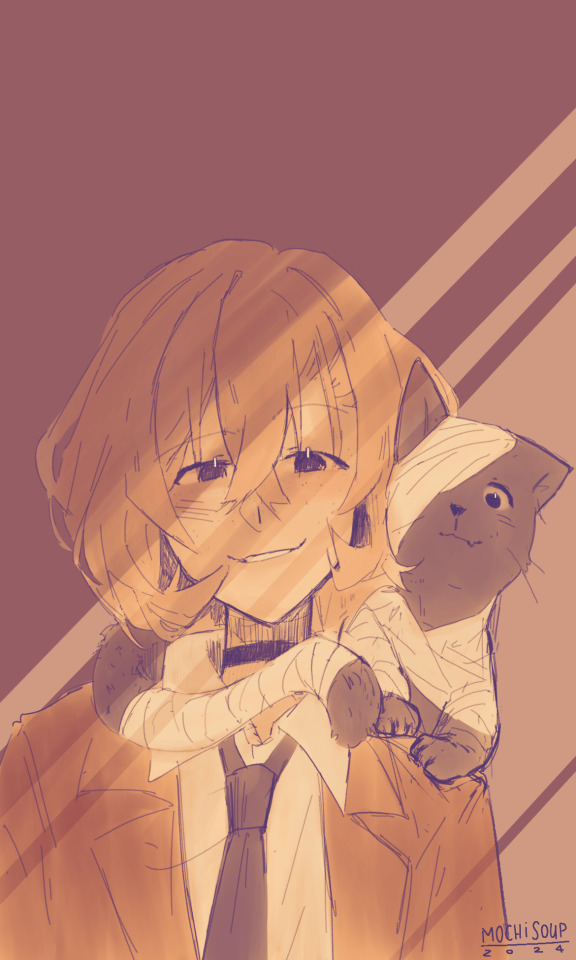
chuuya & kitty!dazai for @ohhcinnybuns
#bungo stray dogs#bsd#bsd fanart#bsd skk#soukoku#dazai osamu#chuuya nakahara#cat dazai#illustration#digital art#myart#mochisoup art#so happy you're using it as your phone bg!!!#is this real???#i cried a bit#tysm to ya'll who've been helping with the colors..#especially salt... tysssssssm!! can't say this enough.... i cry lol
577 notes
·
View notes
Text
The god of lies retcon is really boring tbh
#I'm glad you changed a complex set of motivations to a character trait that takes 0 skill to write#“what if solas was lying” what if he was huffing paint#veilguard critical#I've been trying to keep my salt under wraps but i can't help it#also I'm not replying to arguments like you're not worth my time if you try to fight
117 notes
·
View notes
Note
hey goob you should break spaghetti before putting it into the pot to boil it helps the flavor
Flavor huh? Wonder why sprout never broke them if that's true! Only one way to find out!
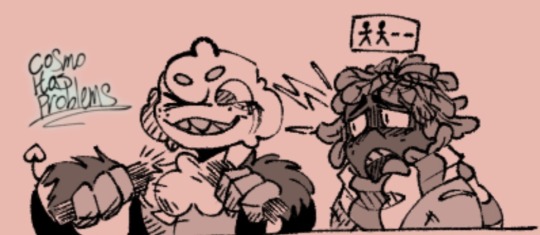
...
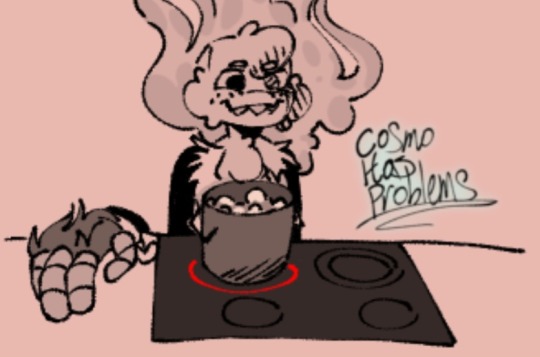
How long does pasta take to cook again?
Bonus:
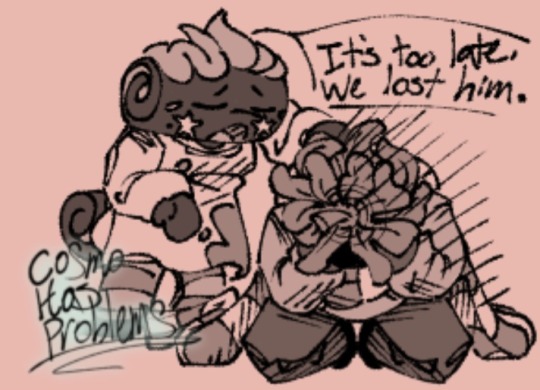
#dandy's world au#dandys world goob#dandy's world sprout#dandy's world cosmo#I can't help but think I've done something wrong here... was i supposed to add salt or sugar?
55 notes
·
View notes
Text
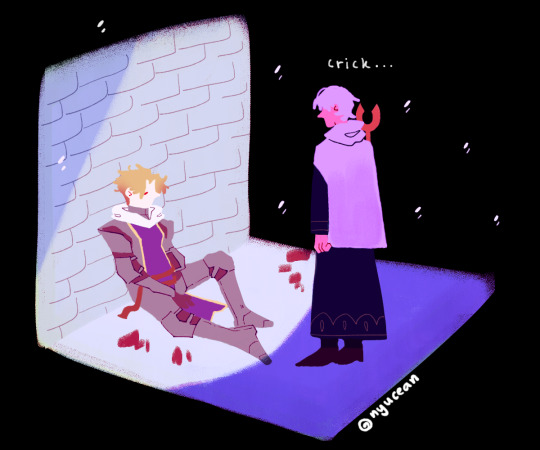
I'll shine enough light on the church's treachery for the both of us
#i sat down alright#i can't believe they did that to me#no words fr like i can't u just can't#its extra sad that crick was coming to terms w the evil in the church and was motivated to help temmy to find the truth and dies#I CANT THEY EVEN SHOWED A FLASHBACK LIKE WAS THAT SALT IN THE WOUND#octopath traveler 2#ot2#temenos mistral#crick wellsley#my art
296 notes
·
View notes
Text
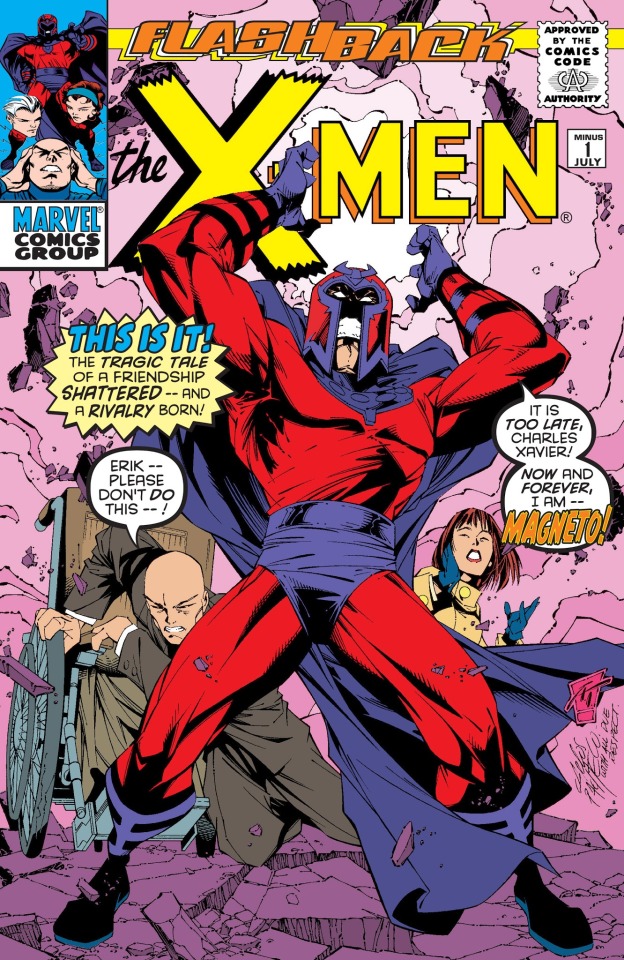
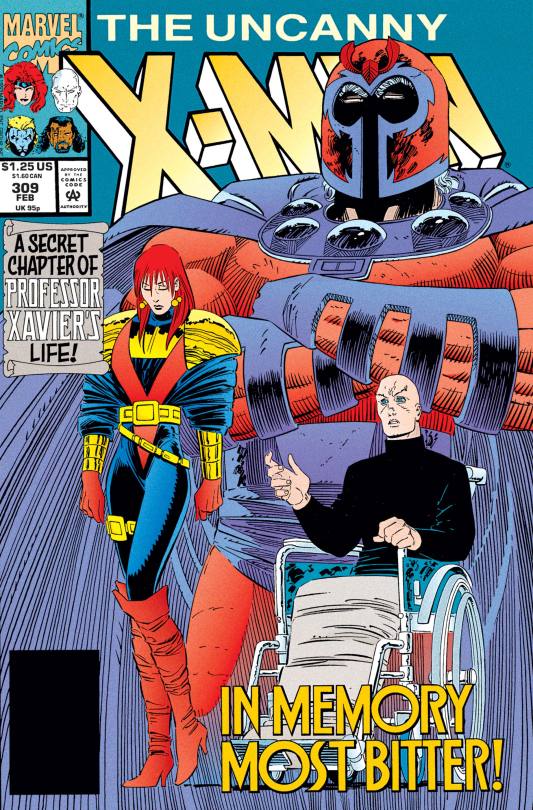
if i had a nickel every time magneto, charles, and amelia were all featured on a cover that framed them as having a wack love triangle then im sure im missing more than just these two but im still baffled i naturally found two so easily anyway
#snap chats#sorry im coping with wanting to draw cherik but 1.) wanting a break from drawing today 2.) having to draw for work this week#so we simply gotta do things old fashioned. my goofy postings#also 'snap you cant just post about 309 twice in a day' OK IN ALL FAIRNESS I MEANT OT POST ABOUT THIS LIKE. THE SEC I GOT 309#CAUSE I REALIZED AND WAS LIKE 'OH THATS FUNNY' but then i forgot </3#anyway. we be talking about erik having beef with lilandra Hear Me Out ..... vjELKEJKLAJ I JEST I JEST#Flashback issue he's just Genuinely had it THIS is his charles-lover-related crashout not lilandra vjALKJALK#is that even like. inaccurate. EH in the issue charles and erik affirm with each other They Can't Work Together#im p sure amelia butts in like 'you guys would work well together tho ..' but i cant remember exactly so take that with a grain of salt#whats so funny about the Flashback issue tho is eriks just. I've Been Watching You Two. VERY Closely. once amelia makes herself known#like are you watching them bang erik is that. is that the insinuation with that tone. can you get help. whats with the tone.#in 309 he just looks like a disapproving ex or some shit it has me weak every time i look at it#not amelia leaving charles and erik just in the shadows like thank GOD
39 notes
·
View notes
Text
Google is getting progressively, frustratingly more useless.
#it's the ai. you cannot use ai on such a grand scale. humans can't moderate it and iron out the problems#i search 'do feathers protect birds from heat' hoping my ducks are not wearing fluffy parkas in 90+ degree weather#and all i get are 'feathers help protect them from the cold by making a pocket of air!'#i know this. i do not care. will my ducks get heat stroke.#'they're cold hardy!' die#negative salt
658 notes
·
View notes
Note
Don’t you think it’d be easier if you and Mayor keep an eye on the girl together? Team effort. Mayor obviously knows more.
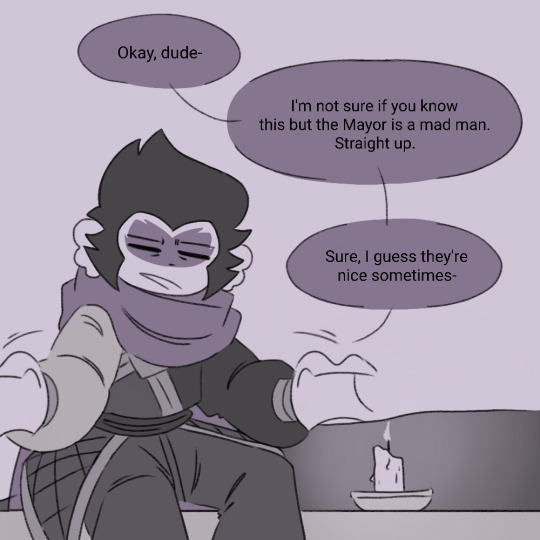

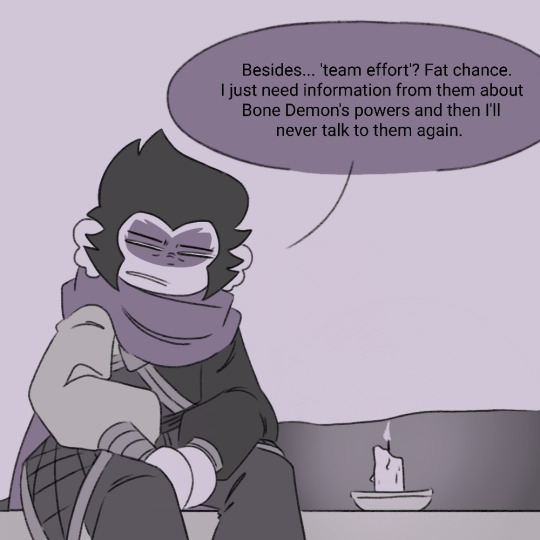
Ask Box is open again by the way! Macaque is no where near comfortable enough to sleep so he might as well answer some more questions, haha.
MASTER POST
Asks Start 💜🩷
Previous 💜
Next 💜
#lego monkie kid#lego monkie kid fanart#monkie kid#monkie kid fanart#lmk#lmk fanart#lmk macaque#monkie kid macaque#blue and violet#macaque does not like the idea#but... well... that doesn't mean he can't say no to it#especially if it actually turns out that the Mayor could help#like I think Macaque is smart enough to know that sometimes he has to put his own discomfort before Baihe's safety#essentially I'm saying you should take what Macaque is saying with a grain of salt#but yeah he does not like the idea of teamwork (both generally and regarding thr Mayor)#dude is a solo act as much as he tries to be
66 notes
·
View notes
Note
helloooo do you have any book recommendations that are quite similar to your work? 💓
oh this is SUCH a good question! also a bit difficult to answer because the better the book, the more up-my-own-ass I look for making a comparison. I'm just going to offer a little selection with very brief summaries/bullet points and hope that you guys understand that most of this list is aspirational and I'm not claiming to be a peer to any of these writers particularly. putting it under a readmore because I know myself.
the very first one that sprang to mind is Badger by C. M. McKenna. A recovering addict forms a mutual, deeply unhealthy obsession with a ruthless vigilante. even though they connect with one another on a level that they can't seem to reach with anyone else, the relationship is volatile and unsustainable. trigger warnings for sadomasochism and brief details about past child abuse and CSA.
Sunshine by Robin McKinley - a career baker is abducted by a gang of vampires and left as prey for one of their own. When dawn breaks and he still hasn't touched her, the tables quickly turn. (I haven't read this one in a while, but remember it as being very in keeping with the kind of romantic relationships I write--prickly, complicated, slow-burning, maybe a little unsatisfying in that you never get quite what you want? Robin McKinley's romances were definitely a huge influence on my taste in general, so her bibliography is worth checking out. The Blue Sword is also good)
Helpmeet by Naben Ruthnum - a woman brings her dying husband to his childhood home to care for him in his final days. Romantic, grotesque, a novella about devotion and obsession. A quick read at under 100 pages, but not always an easy one. cw for body horror and some generally gross descriptions of a guy who's basically falling apart, but absolutely worth it, I think. I read this in one sitting and have been recommending it since. I'm getting increasingly interested in blending horror and romance, and this project marries the genres perfectly.
I'm going to pivot slightly and lean harder into the "aspirational" side of things-- the following books don't so much have things in common with my writing (or my writing with them) but they scratch my brain every which way, I love them, I've reread all of them at least 3 times, and they're definitely in mind when I think about how to plot a story or set a scene or progress through a romance. (you'll forgive that the first 2 options are YA-- I have a whole lecture about YA's stranglehold on marketing and how lots of books that are by every other marker "adult fiction" get sucked beneath the YA umbrella even though they don't belong there just so they'll sell better, but we won't get into it now)
The Folk of the Air Trilogy by Holly Black - fae court intrigue, scandals, treachery, and backstabbing + a central couple that hates each other so much that they just have to do some smooching about it. you love to see it. A lot of stuff billed as "enemies to lovers" is fangless because they're worried about making the "enemies" too unsympathetic or too mean-- not here. Here, there are several times when I was worried either half of the couple was actually going to kill each other, lol. Violent mutual obsession. Difficult to put down once you've started.
The Six of Crows Duology by Leigh Bardugo - mean, nasty criminal wunderkind Kaz Brekker is out for revenge, and also to take over the city's underworld entirely. Heists on heists, thousands of plates spinning at once, a crew full of misfits, and a girl that has become his right hand, his confidante, and his conscience (entirely against his will). we love a high fantasy crime romp, especially with such a complicated relationship at its center.
The Secret History by Donna Tartt - I can't ever put together a books rec list without adding this. If there's a single person out there who missed the early 2010s tumblr craze and doesn't know what this book is about: a California misfit finagles his way into an elite private college in New England, where he becomes fascinated by a small, elegant clique of Classics students. He manages to infiltrate the clique, and slowly becomes involved in their personal entanglements, quarrels, secrets, and-- eventually-- murder. Everything that has ever branded itself "dark academia" is trying to do what TSH did and has failed miserably. It is the blueprint and incomparable. Tartt's lush prose seduces you as quickly as the clique seduces Richard, and, like Richard, you don't want to leave, don't want this charmed existence to end. At least half of what I do is trying-- pretty unsuccessfully-- to be in conversation with The Secret History. It accomplishes everything it's trying to accomplish, and it's a privilege to read.
The Library at Mount Char by Scott Hawkins - do you like found family? You won't for long. A fucked-up array of found siblings are being groomed to mysterious purpose by a father figure who has kept them locked away from the world at the Library, where they are raised and trained and tortured in turn. Carolyn, one of the more unassuming of these siblings, has a plan to get free-- a plan that quickly puts the whole world in serious peril. Like most of the rest of the books on this list, this one is un-put-downable, setting a breakneck pace and with compelling characters, and I'm just in so much awe at the way this is plotted-- it's a masterclass in compelling storytelling, and by a guy who's only ever written Linux manuals! I don't know how you write a debut novel like this. I think about it all the time.
Howl's Moving Castle by Diana Wynne Jones - this is tumblr, everyone knows about Howl's Moving Castle, I won't belabor the point, but the book is different from the movie in a way that makes it very worth reading, and it's kind of the champion of bicker romance, a couple whose love language is low-level (to high-level) quarreling nonstop. they drive each other crazy and would also die for each other. so romantic <3
okay I've lost the plot. here's a bite size book rec blast to wrap it up and the points where I think we overlap: Piranesi by Susanna Clark (faith, optimism, gratitude and awe for the world you live in), The Blue Castle by L.M. Montgomery (taking the frightening step to build intense intimacy with a stranger), obviously the Thomas Harris Hannibal books (complicated romance with a killer). Set This House in Order by Matt Ruff (sometimes, your protagonists have a rich inner life that you have to navigate carefully-- some more than others). The Checquy Files by Daniel O'Malley (sometimes your female protagonist is pitched headfirst into a dangerous and mysterious world she's not prepared for and has to wing it the best she can. this one is a reach because that applies to thousands of books, I really just wanted to include it because these are fabulous books and fun to read). Blood Meridian by Cormac McCarthy (figures of great evil are vastly seductive, difficult to escape, and ultimately suffocating), Wise Blood by Flannery O'Connor and The Devil All the Time by Donald Ray Pollock (try as you might, you can't outrun God). (SERIOUS trigger warnings for the last three-- violence, sexual abuse and assault, all the grotesqueness that comes with southern gothic-- basically assume if there's something bad, then it's in one of those books.)
I think I'll call it there. Sorry I quickly abandoned answering your question and instead spent most of the ask on "here's a book you should read. here's another book you should read" but in my defense. you should read some of these. what you read ripples out into what you write, and these are some of my favorites, so that should count for something, right? lol maybe not but thank you for asking anyway because this was fun.
#also ditch goodreads and get a storygraph!! all my homies hate goodreads. and I think storygraph is prettier#I'll be your friend on there if you ask (find me @morewitchy)#potentially crazy work putting Blood Meridian on this list. universally considered one of the bleakest most violent novels of all time#not something I think anyone should read unless they have like zero triggers (and-- as I learned the hard way-- definitely not before bed)#but it's beautiful. cruel. can't help myself. but take a whole tablespoon of salt with that recommendation and know your limits!#also. I have e-copies of literally all of these. if you have any trouble getting ahold of them for any reason hmu and I will share
7 notes
·
View notes
Text
i very heavily recommend
there for you (a duet)
over til it's over (a group song but he has a small solo, a duet part, and he leads the male group parts)
it's my time (a group song but he has a duet part, and you can hear him on the first chanty part)
from the lodge to any dbd fans (who haven't seen it already) who want to hear jayden's singing/rapping voice
time stamps under the cut for the last two if you need them
(these are from the soundtrack version btw but the scenes line up i'm pretty sure)
over til it's over: 0:19 - 0:23 (solo part), 0:40 - 0: 53 (group part 1), 1:05 - 1:09 (group part 2), 1:14 - 1:17 (duet part), 1:28 - 1:40 (group part 3), 1:52 - 1:55 (group part 4), 2:10 - 2:21 (group part 5), 2:33 - 2:36 (group part 6), 2:48 - 2:53 (group part 7)
it's my time: 0:01 - 0:14 (chant part), 1:39 - 1:55 (duet part)
#all from season 2 cause the only season 1 you can hear him in is never let you go#which i myself only like the chorus of but he still sounds fantastic on the chorus so can't complain that much ig#and you barely hear him on the season 1 song believe that but he dances in the music video and looks adorable in his outfit#<- okay that's semi untrue he does an adlib at 1:02-1:04#and he's definitely on the chorus but he goes in and out so take this with a grain of salt#warning: he literally looks so young in season 1 (cause he was) it through me for a loop while rewatching believe that#okay hopefully those timestamps are good but again they're just there if you need help picking out his voice#<- no shame in that#dead boy detectives#charles rowland#the lodge#disney the lodge#the lodge disney#noah potts#jayden revri#the lodge uk#the only season 1 song***#EDIT: OOP there's also step up from s2 which is a song with him and two other ppl#if you know the sound of his voice you can very easily figure out which verse is his
27 notes
·
View notes
Note
Krisnix and cykesquill?
Krisnix (I Ship it)
What made you ship it?
Projecting onto Kristoph. I first started to be curious about the ship at about the same time that I got into the fandom a few years ago. Discovering the k*nk meme was pretty groundbreaking for me in terms of introducing me to a lot of ships that I might not otherwise have considered. (As I believe I've mentioned, I'm pretty indifferent to both narumayo and narumitsu so I was definitely looking for other pairings to get into besides the obvious slash option and obvious het option). Krisnix started appealing to me pretty quickly due to the inherent tragedy and drama of such a ship. However, it took me finding fanworks that leaned more into Kristoph as a comedic and/or tragic character (as opposed to just him as the designated evil villain in endgame narumitsu) and emphasized his vulnerabilities that really got me into the pairing. I really credit the Count of Monte Cristo AU, the Frozen AU, and these two pieces of fan art for really getting me to latch onto a more nuanced, emotional Kristoph and to the ship.
2. What are your favorite things about the ship?
As a former English major, I tend to get feral over ships that utilize some of my favorite literary devices. And there is so much to work with for krisnix. The "doomed by the narrative" trope, particularly given that the fact that Kristoph's actions even before they met inevitably doomed any relationship (romantic or otherwise) that they might have had before it even began. Not to mention Phoenix's savior complex vs. the man who it is too late to save.
There's this sense of Kristoph as a dark mirror/foil of Phoenix, and given that Kristoph's influence canonically brings out a very dark side ( hidden cameras, forgeries, manipulation) of the otherwise "heroic" Phoenix, I like to contemplate that the reverse may have been true as well--that Phoenix's "light" might have penetrated Kristoph's darkness even if only a little and if it was already too late. The yin-yang potential fascinates me. I also love the fire and ice imagery motif that surrounds them.
I also love the intriguing possibilities of the 7-year gap--the opportunities for closeness, catching feelings in spite of one's self in a way that is all but inevitable when you spend so much time together, the idea of Kristoph at least somewhat co-parenting Trucy with Phoenix, wondering exactly how much of their "dinners" were genuinely for mutual surveillance and how much was because they grew to enjoy each other's company, speculating as to when Phoenix realized Kristoph was involved in his disbarment (my headcanon is less than a year) and if Kristoph ever realized Phoenix was on to him.
They're also so weird about each other in a way that's so interesting to me. The solitary cell scene is frankly bizarre in a lot of ways, but I am always taken aback by how quickly the two of them fall into their old rapport. Kristoph is literally in a jail cell because of Phoenix, and yet they are super polite and friendly to each other. Honestly, Kristoph in this scene seems far more upset about the idea that Phoenix's "friendship" might have had ulterior motives from the start than he is about the fact that said false "friendship" resulted in Kristoph's incarceration. (Phoenix's bringing up their friendship, trying to snoop in Kristoph's mail, and questioning why Kristoph killed Zak are the only times in this scene that Kristoph's facade slips. Otherwise, they're just bantering like old times. Why are they this weird? I don't get it but I love it anyway).
I also love a lot of the relationship tropes that the ship plays into: uptight loves impulsive; repressed loves outspoken; contrasting visual aesthetics; fake relationship/becoming the mask; foe yay; things we left unsaid; the enemies-to-friends-to-lovers-and-not-necessarily-in that-order pipeline. It's all so good.
3. Is there an unpopular opinion you have on your ship?
The unpopularity of this opinion has fluctuated over time, but when I first started shipping krisnix, there were really strong fanon for all of the following: 1. Top and/or Dom Kristoph who liked subjecting poor poor Phoenix to times that were neither fully safe, fully sane, and/or fully consensual. 2. Helpless cinnamon roll woobie Phoenix who has NO IDEA about Kristoph's various crimes until a Savior™ (usually Miles, occasionally Apollo, Trucy, or Maya) comes and explains the plot to him even though canon implies he puts this together on his own and pretty quickly. 3. Kristoph is a generic sociopath incapable of any real feeling and diabolically clever who gets off solely on POWAH and does evil for evil's sake.
None of these headcanons/interpretations had any appeal or rang true for me, so it was hard for me to interact even with some of the people who shipped it because they shipped in in the opposite way/ for opposite reasons that I did. I even had someone tell me in no uncertain terms that I was shipping it "wrong" for headcanoning a more vulnerable, conflicted, nuanced Kristoph who wasn't a pure one-dimensional generic villain, who had real and genuine feelings (both for Phoenix and in general) , and who was overall more likely to be submissive and/or a bottom than dominant and/or a top.
As I have said, fanon de jour has fluctuated significantly overtime and more and more people who headcanon/prefer a Kristoph more similar to the version that I enjoy have come out of the woodworks and shared their fanworks/head canons/meta with the world. (*Waves affectionately to all my beloved krisnix frens and mutuals. You know who you are. *) That being said, with the release of the AA 4-6 Trilogy port, I have noticed another shift within the larger fandom towards the "Hello Naughty Phoenix, It's Murder Time" Kristoph interpretation again, which makes me rather sad/anxious. I just wanna be able to project onto and shamelessly woobify the pathetic blond blorbo without worrying about people telling me I'm not allowed in the krisnix sandbox anymore. And like I think I'm probably safe enough but there's still a little fear.
Cykesquill (I Ship It...albeit much more casually)
What made you ship it?
A combination of being somewhat indifferent about the fandom-preferred ships for them (Juniper or occasionally Apollo for Athena; Nahyuta for Blackquill) , the fact that I already actively shipped Athena in a similar-ish pairing that is just as (if not more) "problematic," and the fact that telling me I am not "allowed" to ship something/shouldn't ship is far more likely to encourage me to ship it than actively deter me. Also I project pretty heavily onto Athena so naturally I'd be drawn towards ships that are narratively and thematically interesting for her.
What are your favorite things about the ship?
I tend to be especially drawn towards ships that are (or have the potential to be) agents of narrative/character development for the characters as individuals. And this is especially the case for Athena and Simon. They were quite literally created with and for each other.
You can't really think or talk about Simon Blackquill without first talking about Athena Cykes--about the fact he was willing to risk and even give up his life to protect a sensitive, frightened child from an experience (prison and/or execution) that would've destroyed everything about her. You can't really think or talk about Athena Cykes without talking about Simon Blackquill--about the brave, kind young man who comforted and protected her when no one else would but who wouldn't let her comfort and protect him back.
Everyone always talks about the impact that narumitsu have on each other, and I'll admit that they do. But the thing is...there are other people in Phoenix's and Miles' lives that have had as greater or greater an impact on each of them than they have on each other. (Mia, Maya, Dahlia, Trucy, debatably Larry, Apollo, or Kristoph for Phoenix; Gregory, von Karma, Gant, and debatably Kay, Gumshoe, and Ziska for Miles).
For Athena and Simon, there's really no contest, they are the single most important and impactful person in each other's life. Yes, Apollo, Phoenix, and Juniper also influenced Athena. Yes, Fullbright, Metis Aura, and the spoiler character also influenced Simon. But none of them did so to the level that Athena and Simon influenced each other. To quote Wicked, "Who can say if I've been changed for the better? (I do believe I have been changed for the better.) But because I knew you, I have been changed for good." That's it; that's them.
Additionally, they do have some other tropes that I enjoy: grump and sunshine (though Athena is so much more complex and complicated than just a "sunshine" and Simon can also be much more playful than the typical grump); the couple that saves each other; contrasting visual aesthetics; height difference; "we're both hella neurodivergent albeit in different ways,"
Is there an unpopular opinion you have on your ship?
The fact that it's a valid ship in the first place? I've legit seen the argument that you can't ship it because hypothetical future step-incest. Which is absurd in and of itself but especially cause it's presuming a reality that could not possibly exist. One where Metis not only lives (so we're starting off very canon-divergent) but also returns Aura's feelings, assumes that because they love each other that they would of course have to get married (which not every couple want) and therefore Simon now is hypothetically Athena's step-uncle in the future and this possible reality should be treated as such even if it doesn't exist. And just if you have to conceive of so many steps in order to justify why not to ship a pairing, maybe your case against isn't as strong as you think. Also very curious to hear what OP thinks of double-in-law marriages (ex: Person A marries Person B and then Person B's sibling marries A's sibling) because like those exist in real life???
send me a ship and I’ll answer three questions based on if I ship it or not.
#ace attorney#krisnix#cykesquill#send help i'm having the feels about how Takeshi Yamazaki does characterization and inter-character relations#again#of course#i can't think too long about aai 2 or dual destinies or i'll go feral english literature major#this man just...he understands how to tie together characters with the Themes™#and that's frustratingly rare in this day and age#i hope he's thriving now that he's moved on from capcom#ofc i still love shu takumi too and I will be ever grateful for his giving me krisnix#aa salt#but like barely apart from thumbing nose vaguely in the direction of n@rumitsu and anti-cykesquills
20 notes
·
View notes
Text
See, requests are so much fun because yesterday I got a request for headcannons for a ghost MC and I would have never thought about that in a million years but now it's haunting me (get it lol).
Ghost!MC terrorizing Baxter because they're bored and it's fun. He gives into the friendship because he's so lonely, MC can't buy him a souvenir on the shopping street because they are a ghost and that's not how that works, but they give him like a seashell or something to remember his time in Sunset Bird.
Then at the end of the summer, he's like "Well, that was something," tells MC bye and heads back to school in Virginia, but then it's like that trope where a ghost can attach itself to a meaningful object. Baxter comes back to his dorm and his desk is on top of his bed.
Baxter: Not again ...
MC: Consider yourself haunted, my good sir.
Baxter: (sighs) I truly do.
#our life beginnings and always#our life#baxter ward#olba baxter#baxter x ghost#i also like the television program supernatural so consider if you will a crossover#mc gets a little too ghosty and sam and dean end up hearing about it#they investigate and meet baxter and are like hey we hear you've got a ghost problem#he sighs in the most long suffering way you've ever heard and is like yeah but it's fine#please don't salt and burn their bones they can't help they're like this#also this ghost is my only friend
21 notes
·
View notes
Text
Okay, so hear me out, here.
Ideas for the new/relocated Utah hockey team that was the Coyotes:
They're reborn from the ashes of a failed/dead, franchise? What else is famously reborn from its own ashes?
Hence: the Utah Phoenixes
Eh? Eh?
Okay, fine, that probably won't do.
*****
Okay, so how about looking to the state reptile for inspiration? The noble Gila Monster.
Probably shorten to just the Utah Monsters for better cadence
[This joke being that one of the Coyote's former arenas was "Gila River" arena. That one was probably a little less obvious than "Phoenixes"]
*****
Okay, so, I see the problem is that we keep stumbling into invoking the specters of the past [Specters/Spirits/Phantoms - Not the worst ideas I've heard, btw].
Let's maybe focus on the iconic desert landscapes, invoking the common heritage there.
The Utah Buttes / Utah Beauts
Look, I know that I'm doing a lot of joking around here, but I'm honestly legitimately proud of that play on words.
And "Beaut!"/"Beauty!" feels like such a classic hockey term, y'know?
Sadly, probably would be too much hesitation for big, manly NHLers to be officially a "Beaut".
That being said, if a professional Womens'-League team ever expands to SLC - There you go, that's a solid name for your team right there.
I kind of like the cadence of it all, still - How about Utah Brutes? Does that feel more workable?
How about Utah Beasts - Especially if ever partnered with aforementioned "Beauts" female team - ("Beauts" and "Beasts", eh? Eh?!)
*****
Okay, last one that actually just came to me in the shower, and I'm actually a little bit more serious about this:
Looking for iconic, usually animals, of the region the team is in, that aren't already taken by other team names.
"Home on the Range" could help here: Pronghorns/Antelopes are an iconic species of the prairies/desert - Lethbridge's university teams use that name, though. But that's less an obstacle to say Buffalo/Bison (which do have a presence there) - Because the Sabres use them in their iconography.
"Deer" might be a bit too generic [not to mention the Bucks have that brand, basically] - Elk is the State mammal, but Edmonton's CFL team already has that claim.
So… other iconic desert animals, not already used in team names/logos?
How about hares/jackrabbits?
Probably not the type of animal iconography you wish to necessarily evoke, though.
Positives include speed, supposed cleverness. "Madness" might be a thing to jokingly play up?
But they fundamentally are still a relatively small prey animal.
But (And I swear, I am going somewhere with this),
With the Seattle Kraken, we've leaned into cryptids being a valid name [ETA: . Heck one of the potential names the ownership group seems to be actively considering is "Yeti".
So, what if we combined the pronghorn and hare ideas, yeah?
But (And I swear, I am going somewhere with this),
With the Seattle Kraken, we've leaned into cryptids being a valid name. [See Also: The Jersey Devil - Which is what New Jersey's name is inspired by. Not, y'know, the ruler of hell, despite their branding all leaning into the "cartoon red devil"-style.]
Heck one of the potential names the ownership group seems to be actively considering is "Yeti".
So, what if we combined the pronghorn and hare ideas, yeah?
You see where I'm going with this, right?
The Utah Jackalopes
Or possibly Utah Jacks for better cadence and all their branding is jackalope-related.
I'm actually not-entirely joking on this one. I think you could actually lean into something really fun with this one.
#Arizona coyotes#Utah/SLC hockey team name TBD#NHL#team name ideas#joking around#but honestly I'd love if they said 'fuck it' and went with one of my silly suggestions here#seriously though - I'd be 1000% behind them using 'Jacks'/ 'Jackalopes'#I don't hate how 'Utah Outlaws' rolls off the tongue#'Utah Blizzard' feels too generic y'know?#(and yes I believe it will be 'Utah' and not 'Salt Lake City' because of a clause in some deal with the state for funding help for their bi#and subsequent relocation. Though SLC would be pretty unwieldy to say in a team name.#Leaning into the same theme as the Jazz (ie: a music style that's not really associated with Utah) you *could* do 'SLC Punks' :P#Everyone's been making that joke - I like it but definitely can't take credit for it)]
9 notes
·
View notes
Text

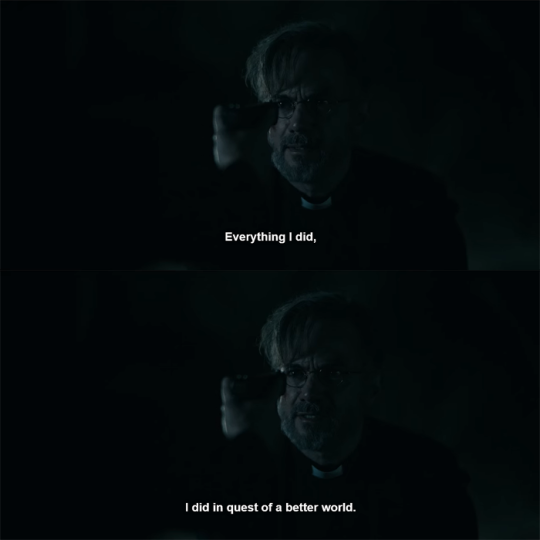
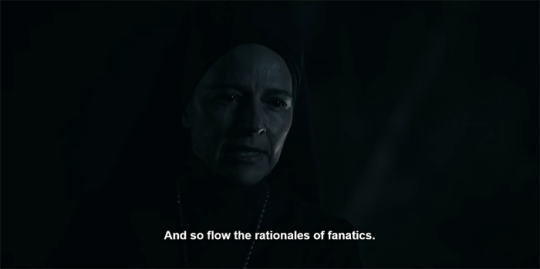
It might appear somewhat essentialist at first if used to examine real, breathing human beings, but Carol Gilligan's "Images of relationship" can provide an interesting framework with which to understand certain facets of Warrior Nun. More so when coupled with David Hayter's comment on how the show's "women are always right and the men are always kind of screwing things up," for her article, dealing in systems of moral understanding, might point us towards the reasons behind this openly admitted narrative "bias".
In a nutshell, Gilligan observes the different strategies by which boys and girls seem to resolve moral dilemmas, deviating from traditional interpretation. This is because, Rosemarie Tong reminds us, "Gilligan challenged the Freudian notion that men have a well-developed sense of justice — a sense of morality — whereas women do not". By looking beyond these hurried and prejudiced conclusions of (male) researchers before her, she "argued instead that men and women have different conceptions of morality, each equally coherent and developed and equally valid". She bases this idea, then, on those resolution strategies that were found to consist of, for boys, a tendency to see the moral dilemma as "sort of like a math problem with humans", while the girls were more inclined to view it as "a narrative of relationships that extends over time" — so if boys seemed "logical" through their impersonal abstraction of a situation, invoking concepts similar to those of law and justice, the girls were more likely to follow a different, "personal" logic, through "an awareness of the connections between people", identifying "a web of relationships that is sustained by a process of communication".
Where this all intersects with Warrior Nun is that the male and female characters seemingly display these same propensities of moral judgment.
If we start with the men, we will quickly see that they are all caught up in their own abstract systems, prone to grand ideas and concepts while detached from the world and the valuable human bonds that make it up, just as Vincent sees the quest for a hypothetical "better world" as more important than the life of a very real, concrete woman he claims to love. Mr. Hayter himself, in the same interview conceded during the OCS Conclave of June 3rd, mentions how father Vincent and cardinal William are irresistibly attracted to the notion of power: "here's this guy who can do godlike things, so why wouldn't I follow him, you know? ... We gotta have some power ... that we bow down to or whatever". This is how he transmits a glimpse into these characters' psyches and we could safely argue that this behaviour and thought pattern extends to the rest of the men in the show, including Duretti, Kristian, Adriel and even Michael Salvius.



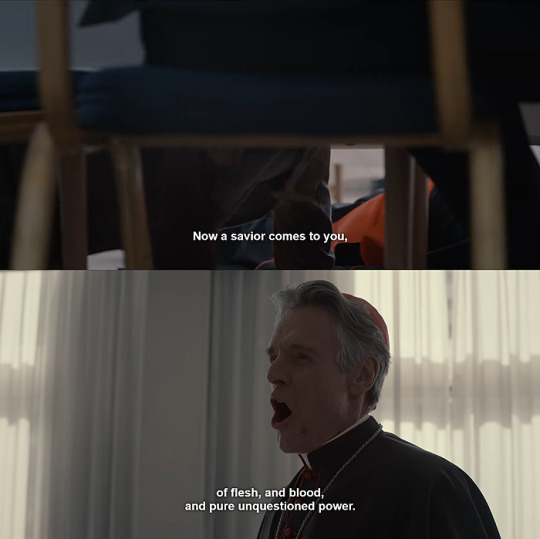

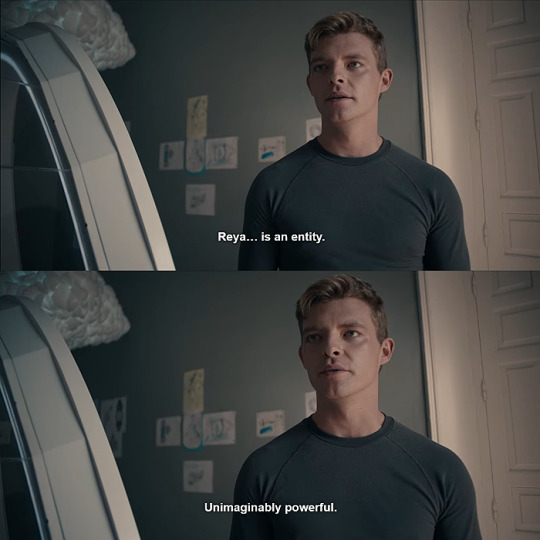
Whether these men mask their fascination with power through other words or not, theirs is a cause which easily calls for violence and a willingness to kill or die for it.
Earthly power inspires Francesco Duretti to have the current halo bearer killed if need be as he attempts to consolidate his bid on the Holy See; Kristian Schaefer would sacrifice the world as readily as he does his old acquaintance Duretti in the name of this power that lay entombed for a thousand years but communicated through the voice of a sick little boy; cardinal William Foster is inebriated with the idea of being a new god's right-hand man, so he brutally slaughters his colleagues to buy himself a place at Adriel's table, even if that means getting no more than his master's crumbs; father Vincent is so eager to find someone or something powerful enough to take the burden of "his darkness" from atop his shoulders that he convinces himself of there being divinity in the parlour tricks of a manipulator, killing a symbolic daughter in this trickster's name; Adriel would bleed humanity dry without a second thought all the while claiming to save it in draining its belief for the benefit of his own megalomania; finally, Michael subjects himself to the will and authority of Reya, whom he claims to be "unimaginably powerful".
Of course the women of Warrior Nun are mostly all ready to lay down their lives for their own cause as well, or else we wouldn't have their iconic motto of "in this life or the next", but the motivation behind it is what sets the men and the women wholly apart here. If the former are intoxicated by the concept of power, the latter are embedded in a family of sorts, in a dense network of relationships that they can identify with some ease, and which informs their decisions and actions more than just dogma or theory.
Most if not all of the female characters struggle between two different stances: one is an offshoot of the males' abstract organisation of the world, while the other is a more "hands-on", "organic" order; between "duty", or what is said to be their duty, and that which their own perception reveals, their "personal" logic by which the "self [is] delineated through connection", seeing one another as actual sisters instead of mere pieces upon the church's chess board. We see the dilemma take place within Beatrice, Camila, Lilith and Mother Superion, who are all faced with a choice of sticking to their place in a well-defined (artificial, abstract) structure or valuing instead the human connections all around them and that stand in opposition to this man-made categorisation of life.
And, one by one, they take the side of that one character who seems to have kept her lucidity and fidelity to her own understanding through it all: Mary.
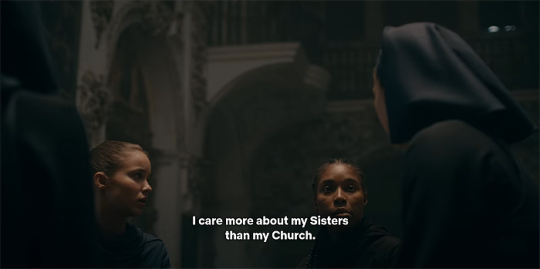
Mary never lost sight of her priorities. Her focus on friends and sisters illustrates Gilligan's point rather well when she is the only one who insists on understanding what happened to Shannon all the while the OCS is made to concentrate its energies on the halo instead. Of course it blinds her to Vincent's betrayal, but that is his fault more than it is hers; her moral compass points at the right direction for the most part.
And, each at their turn, the nuns adopt (rediscover?) this same mode of thought. Beatrice's efficient, obedient soldier façade crumbles beneath the urgency of siding with Mary rather than following the arbitrary decision of some man invested with the power of an institution; Camila outright admits wanting to be kicked out of the church just so she can stay near to the people who represent her allegiance more than liturgy itself ever could; Lilith literally travels to hell and back to rejoin her sisters, regardless of how her subsequent mutations upset her loyalty later on; Mother Superion sheds her prominence within hierarchy, risking it all, by standing with "her girls". Even Ava, an outsider with no ties to the church but who so desperately wanted to "live", trades a vague, abstract notion of what "life" and "freedom" entail for the very definite, tangible reality of the family this group of women becomes for her.
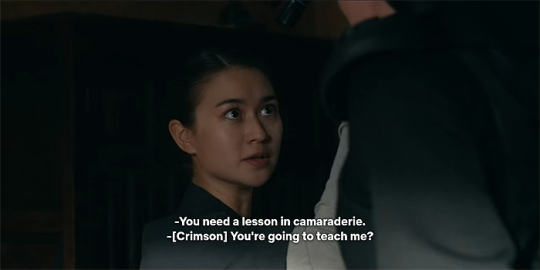
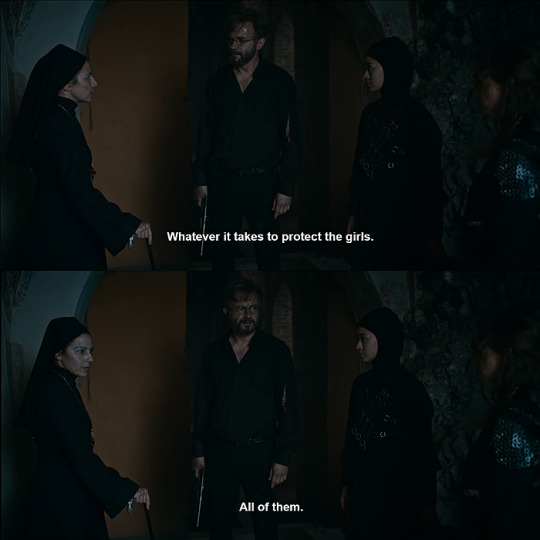
Another outsider equally stuck between "bodiless" logic and the reality of human connection around her, Jillian Salvius, too, falters before choosing her side when faced with these two points of view: that of "pure" reasoning and that informed by the consciousness of surrounding relationships. Her quest for "knowledge" is not sufficiently strong so as to potentially sacrifice someone in her inner circle. Season one has her holding young Michael back from stepping into the machine she herself had created for this purpose when concern overrides calculation; season two gives us a powerful scene where she is tempted by Kristian into joining Adriel's ranks as he claims she is already a part of it all and dangles before her the forbidden fruit of the world's hidden laws, the elusive answers the scientist in her has always searched for. He tries to hook her in by simultaneously appealing to her intellectual interests as well as her understanding of the web of relationships when he claims she is another link in the chain that leads to Adriel...
And Jillian refuses him.
Kristian would never convince her of already being within this specific network of relationships because he was the one to rupture it first.
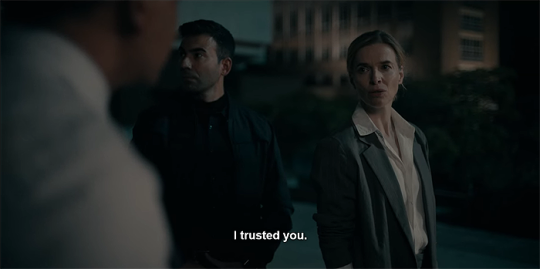
To these women, unlike the men, it's not about ideas — or, rather, about rationalisations, given how their interpretation of what is logical or reasonable is more than open to inquiry. To these women, it's not about loud, large but empty words vulnerable to tampering and shifting meanings; it's not about power.
It's about people.
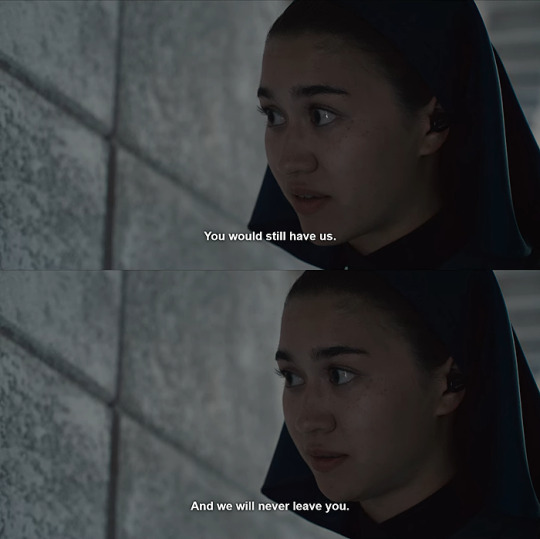
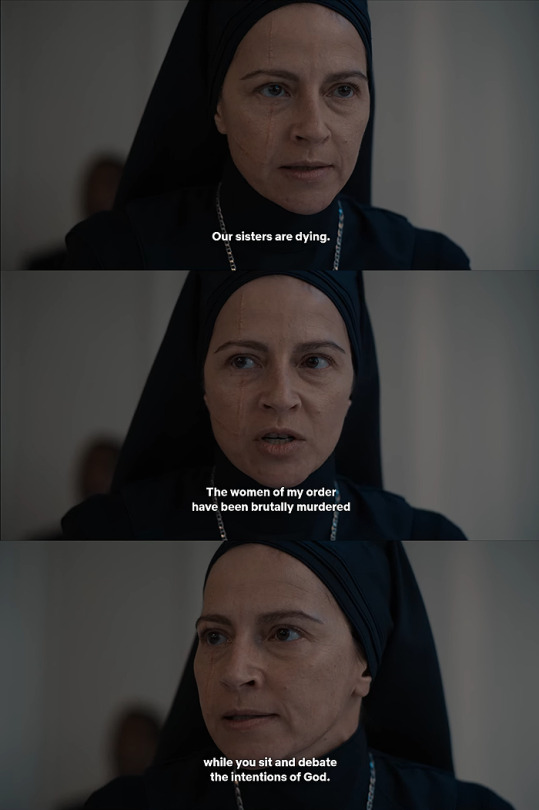

Rosemarie Tong says "Gilligan believed that women's moral development takes her from an egocentric, or selfish position to an overly altruistic, or self-sacrificing position and, finally, to a self-with-others position in which her interests count as much as anyone else's" — and this seems to describe perfectly well the inner trajectory that these characters follow. We see traces of the selfish in Ava, Jillian and Lilith, as well as of the self-sacrificial in Beatrice or Suzanne, but they all appear to converge on this path towards constructing a "self-with-others" whereby they are all individuals inextricably tied to one another — and aware of it, acting accordingly. A sisterhood, a direct sisterhood that supersedes the very church structure which facilitated it to begin with.
Of course Warrior Nun is too intricately built to allow itself to be so smoothly explained; if Carol Gilligan provides a framework that helps us to identify what is so positive and deserving of attention in the female characters' attitudes as championed by one of the show's own writers, it also falls short on other points and her propositions can then be questioned by the show in turn.
We need but a few examples.
If Jillian Salvius values the significance of association with others more than she does a cold, distant overview of things (the latter being the stereotypical scientist attitude), then how is it that she seems so prepared to immolate Lilith at the altar of curiosity? One relationship takes precedence over the other, yes, and we cannot compare the love for a son to whatever affection or respect there is for anyone else, but the nature of Jillian's experimentation with Lilith, had it gone forward, is quite brutal even for the sake of a debilitated child. Jillian's stance is understandable, but this "self-with-others" thing isn't as clear-cut as we might think.
Lilith herself oscillates between those three positions of moral development described by Gilligan, going from selfish to "connected" by the end of season one, but ending season two in almost complete isolation, with only a hint towards her previous place in a web of sisters as she aids Beatrice in getting Ava to the ark... Shortly after having dug her claws into the warrior nun's flesh.
But perhaps Lilith is a more special case than we realise at first. Our early childhood experiences define much of our character, after all, and the words we use have a bearing on how we view and reconstruct the world in our discourse; Lilith's understanding of the relationships between people, of "family", probably doesn't reflect that of her sisters given the ill-treatment she must have received from her relatives. If one's primary web of relationships is so tainted, what model can it ultimately provide for later connections? Just as Ava's mistrust for nuns is justified by her previous, negative experiences at their hands, Lilith's experience with intimate or familial bonds surely affects her maturing sense of being linked to other people. If family is a positive value for Ava and Mary, for example, it cannot boast of the same meaning for Lilith, whose family is a source of stress and misunderstanding rather than a harbour of love.
The treatment she has received might have corrupted her grounds for moral judgment by communal lenses in a way Beatrice's rejection by her own parents did not, leaving Lilith adrift as long as she does not somehow attempt to re-signify what human connection ultimately means. To Lilith, as of yet, the web of relationships she necessarily belongs to mirrors the initial disposition she was brought up in, as a hierarchical structure where every link is tainted by the stench of power and domination — the OCS is a family much like her own... Where orders are given and meant to be obeyed.
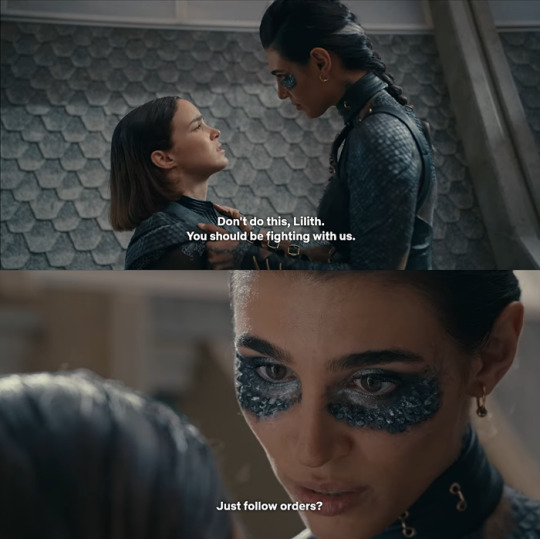

We cannot know for certain what it is that she sees or feels after Adriel "unlocks" her wraith-vision, but there is something peculiar in how, reflecting this idea of abstract versus material views of the world we've been discussing, Lilith claims to see reality when she casts her eyes upon the nebulous demonic figures only few others can see. In her opposing traits are mixed, delivering a strange synthesis we cannot quite make out yet and making Lilith a hybrid both in body and in thought.
And while this fact alone seems to interrogate David Hayter's comment about how the women in the show tend to be correct, we can further complicate the statement by glancing at Reya.
There is frightfully little we know of her, but a lot of the information we do have is conflicting: Reya is unimaginably powerful, yet needs to manipulate two young people to do her bidding for her in fighting Adriel; her predictions are "meant to be" yet do not manifest in the way they were said to; she is described as some sort of benefactor by taking Michael in, but she sticks a bomb into his chest and the very sight of her sends him reeling; she is, as far as we know, a woman, yet she might very well be at odds with the other women we see in the show. How, then, are the women always right?
Perhaps they are so when following their conscience as guided by their understanding of community and sisterhood, when belonging to a network of relationships and acknowledging it. That would exclude a murderous sister Frances, a confused Lilith and a mysterious, distant Reya from the definition.
In this sense, then, even if the characters are not static or simple, even if they waver between the moral positions suggested by Gilligan and which do not seem all that definite to begin with, her text is still enlightening as relates to why the women are, "word of God", the moral touchstone of Warrior Nun.
Having been robbed of further development of the story and universe for the time being, however, precisely because of an abstracting, impersonal corporate logic that sees only numbers where there should be people and the wonderful effect this show has had on them, there is only so much we can conjecture on this subject...
#warrior nun#analysis and similar#exercises in observation#i should tag all of the characters since they're all more or less discussed but i am too lazy for that sorry#i can't explain why i took so long to write this it's been in my essay list forever. then the david hayter revelations hit#and i knew i had to finally write it strengthened by his words#it's fair to tell you i have about a trillion reservations about psychoanalysis and psychology and whatever#but you also know by now i'm a pragmatist. if the theory helps me explain something i will use it.#then again i suppose i should have read gilligan's entire book lol but my eyes wouldn't have survived#i had read her text in january of last year i think because it's in a collection of feminist texts i own in print#so yeah. grain of salt etc#i'm not sure i've properly exposed what i wanted to say but i've had enough of this text and i'm releasing it into the world lol
26 notes
·
View notes
Text
I wish I could find this article I read a WHILE ago about BioShock Infinite and Elizabeth.
The main focus I remember was pointing out how the response to Elizabeth was "She's not annoying! She doesn't get in the way! She doesn't slow me down!" and lamenting how female characters are only praised when they're convenient and out of the way. Because if Elizabeth hadn't be cute and charming, or hindered the player's quest, she would've been scorned by gamers who would've wished violent death on her.
#bioshock infinite#infinite salt#cardboard cutouts#idk man. i dont understand the praise of her as a strong female character. she can't even get out of her tower without the help of a man#and she's not allowed to retaliate against men or be anything but attractive to men. her whole character is just tied to the male gaze#its a shame 😔
18 notes
·
View notes
Text
I need to call our dentist today because we're back to pretty much unmanageable levels of pain, but also our gums are swollen and that side of our face is hot to the touch and our mouth keeps tasting really bad so clearly there's something very wrong
#personal#thoughts#🍬 post#vent post#posts made on pain meds#I'm still upset about the fact that nobody has given us any other options for pain relief after we've said the meds we have aren't enough#and that despite the oral surgeon mentioning that we probably have an abscess under one tooth#we haven't been prescribed anything to help with that?#like yeah we're having the tooth pulled but unless someone cancels their surgery within the next couple of days#we have to wait another month and to me it seems like a really bad idea to just leave it untreated for that long???#there was a lot of stuff that took a while for us to be able to figure out too because things weren't communicated clearly enough#and it kind of feels like we've just been left to figure everything out on our own#stuff got miscommunicated in a way that I'm pretty sure led to us not being able to get an appointment booked in early enough#and I've said I'm in so much pain that taking the maximum safe doses of multiple painkillers often isn't enough#and we still get the typical ''well you can actually try taking paracetamol and ibuprofen at the same time if just one isn't working''#as if we're not already taking co-codamol (codeine and paracetamol) and ibuprofen and an anaesthetic gel#and using cold packs and salt rinses and still being in so much pain we end up laid there unable to do anything for hours at a time#and keep struggling to actually eat anything or sleep for more than a couple of hours at a time#at one point one of the people we spoke to while booking the surgery was like ''are you in pain?''#and I explained that yes I'm in so much pain I can't actually manage it with pain meds#and there was just this awkward silence and it's like... what did you expect? you have the x-ray of my rotten infected tooth right there#you could probably look at that and take a wild guess and figure out that I'm in severe fucking pain from it#at least we can apply for a payment plan (hopefully) for the surgery so we're not just bankrupting ourselves with one big payment
4 notes
·
View notes
Note
Random yes but thank u for making that frusan art awhile ago it's adorable and i love seeing more art of this underappreciated ship :D!!!
ahhh thank you!!! frusan is so underrated FOR REAL, i guess it's probably because after Islands they all but disappeared (like i think they were only shown twice after that and that's including in Fionna & Cake (which i actually missed when i watched it bc its such a brief glimpse)) but like. still. I actually have a little idea for another frusan drawing (frieda and susan talking on a roof grown-up edition) but I have to break up the dialogue into parts & think of more Susan Reactions so it's not just Frieda monologuing at her lol
#frieda is such a compelling character to me augh because seriously living on the islands sounds like. idk. scary in an existential way#like if I lived on that tiny(?) island always with the same people and didn't have hope that I would maybe someday get to explore someplace#new and meet new people. i would explode i think.#and frieda HAS hope & the drive to follow through with it#but then susan goes robo-mode and like surely any hope is just GONE after that#thats such a crazy interesting dynamic can't believe everyone else on earth isn't also insane about this#obviously it's not susan's fault that she went robo-mode but it's still recieved as a betrayal yk. so sad :(#and then susan went after finn & they probably all assumed she was dead#AHHH??? i can't even imagine how that would have felt for frieda?? like imagine you're trying to get off the islands and your favourite#person won't go with you but she helps you. but then she betrays you (not her fault but yk) and then (i'm assuming its not even that long#after) she's sent off the islands and she goes willingly#like wowww way to rub salt in the wound susan omg (i love susan this is not susan negativity)#my little angsty hc about that is like. frieda still holds a little bit of resentment towards her for what happened but she knows she#shouldn't because what if susan was right? what if she left the islands and it wasn't safe and she DIED?#but then also what if she isn't? what if she just left and it wasn't worth coming back? what if frieda wasn't worth coming back for? yanno#stuff like that. AGHHH hhh i love frieda#and then they go adventuring together and work it out and kiss on the mouth#uhhh i'll stop myself there before i write a whole essay in the tags (or maybe i already have ahahah...) but yeah. i love frusan :3
9 notes
·
View notes